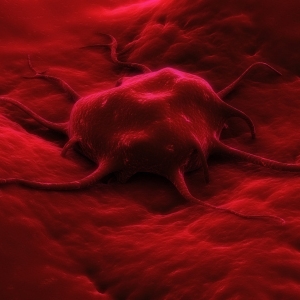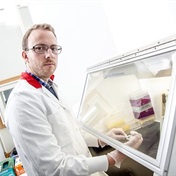
An Australian court dismissed a challenge against the patenting of human genetic material in a landmark case which has devastated a cancer group that says it could stifle research.
The case hinged on whether a valid patent can be granted to cover naturally occurring nucleic acids, the building blocks of living organisms - in this case the so-called breast cancer gene BRCA1.
Federal Court Justice John Nicholas rejected the argument that BRCA1, a genetic mutation associated with an increased risk of breast and ovarian cancer in women, could not be patented because it was a naturally occurring substance.
He ruled instead in favour of the two medical research companies that hold the patent, US-based Myriad Genetics and Melbourne-based Genetic Technologies Ltd.
"There is no doubt that naturally occurring DNA and RNA as they exist inside the cells of the human body cannot be the subject of a valid patent," his judgement concluded. DNA and RNA are types of nucleic acid.
"However, the disputed claims do not cover naturally occurring DNA and RNA as they exist inside such cells.
"The disputed claims extend only to naturally occurring DNA and RNA which have been extracted from cells obtained from the human body and purged of other biological materials with which they were associated."
Ruling 'a blow'
The decision is the first in the country to consider whether isolated DNA or RNA sequences can be patented and lawyers for Cancer Voices Australia, which brought the case, have argued it raises ethical issues about the commercialisation of the human body.
The judgement is a blow to the cancer campaigners, with the woman who brought the case, Yvonne D'Arcy, leaving the court in tears.
"To tell the truth I'm very disappointed," she told reporters. "We were doing this for future generations, and I'm just so disappointed."
Cancer Voices Australia also expressed its disappointment in losing the case which it said was for people with all diseases with genetic markers.
"We think that is it very important that information about people's genes (and) genetic makeup be freely available to researchers, not only in Australia, but around the world," Cancer Voices' John Stubbs said.




 Publications
Publications
 Partners
Partners











